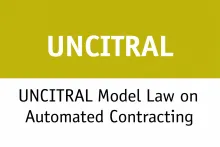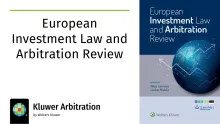Arbitrating Shareholder Disputes: Dutch Law Lens with a Dash of German Law Perspective
August 6, 2025
Shareholder disputes can create intricate scenarios, blending business and personal relationships into a complex backdrop. Shareholders may share a connection that transcends financial interests. While agreements may dictate the structure of such relationships, conflicts can still emerge particularly when there are deep-seated disagreements over each shareholder’s contribution to the company’s success or struggles.
Arbitration can be employed to settle these disagreements. Nowadays arbitration clauses are frequently incorporated into shareholders' agreements or articles of association. For instance, the articles of association of Royal Dutch Shell Plc provide that all disputes between a shareholder and the company, or between a shareholder and a director, shall be resolved in arbitration.
Nonetheless, questions persist regarding enforceability of such arbitration agreements. The arbitration of shareholder disputes presents challenges, including the jurisdiction of the arbitral tribunal, the structuring and management of the proceedings, and enforcement of the final award. National courts exhibit divergence on the arbitrability of such disputes. This piece explores Dutch and German perspectives to identify insights for Dutch practice from the German law perspective.
Why Arbitration Stands as an Effective Mechanism for Shareholder Disputes?
Arbitration emerges as a potent tool in shareholder dispute resolution, offering a range of advantages that distinguish it from traditional litigation. The confidentiality embedded in arbitration is crucial for handling sensitive information in shareholder disputes, providing a private forum that shields proprietary details and fosters confidence among the parties involved. The flexibility inherent in arbitration proceedings is a key asset, allowing for expedited resolutions that meet the demands of swift decisions and immediate relief often required in corporate disputes.
In international contexts and more particularly when the company is incorporated in a foreign jurisdiction by investors who originate from different countries, arbitration's appeal is heightened by the option to choose a neutral venue, contributing to fairness and impartiality in the resolution process. Finally, the global enforceability of arbitral awards under the New York Convention provides a reliable framework for execution.
Despite these advantages, within the Dutch legal system, there are a number of considerations that may impede the resolution of shareholder disputes through arbitration. This piece delves into two of them.
Clear Consent: The Pillar of Shareholder Arbitration Agreements
The effectiveness of an arbitration agreement hinges on the clear and unambiguous consent of parties, as articulated in Article 1020(1) and (2) of the Dutch Code of Civil Procedure (“DCCP”). The precise wording of the arbitration agreement plays a crucial role in demonstrating this consent. In shareholder disputes, the wording of the arbitration agreement is particularly significant in view of potential changes in the shareholder structure. When a new shareholder joins, he must be bound by the shareholders' agreement or the articles of association, including any arbitration clause included therein.
A judgment by the Amsterdam Court of Appeal, recently confirmed by the Dutch Supreme Court, provides a compelling illustration of the critical importance of clear consent. This case involved a dispute over a software license agreement between Dutch technology developer, Geosolutions, and the joint venture, GyPSii. The agreement, co-signed by joint venture partner Sina HK, under the heading "Acknowledged and agreed," led the arbitral tribunal to determine that Sina HK became a party to the agreement, including the arbitration clause, and ordered it to pay USD 116 million in damages. However, in annulment proceedings, the court ruled that Sina HK was not a party to the arbitration agreement. The court considered that the arbitration agreement stated it was binding on both parties, interpreted as Geosolutions and GyPSii, excluding Sina HK.
This decision prompts scrutiny of its alignment with Article 1021 of DCCP, which dictates that "for this purpose an instrument in writing which provides for arbitration or which refers to standard conditions providing for arbitration is sufficient, provided that this instrument is expressly or impliedly accepted by or on behalf of the other party." Nonetheless, the decision underscores the prevailing judicial reluctance to infer consent. As such, attempts by some commentators to extend arbitration agreements to non-signatories through the doctrines of "group of companies" or "economic reality"—drawn from corporate law—are unconvincing in light of the high threshold of consent required for arbitration.
The ruling emphasizes the necessity of explicit consent. It signals that companies must take caution in drafting effective arbitration clauses. In addition, beyond mere inclusion in corporate documents, businesses can consider supplementary mechanisms, such as requiring separate written consent from new shareholders or incorporating reference clauses that ensure arbitration clauses automatically extend to future share transfers or corporate restructurings.
Erga Omnes Effects of Shareholder Matters vs. Arbitration
Corporate matters carry implications that shareholders themselves cannot unilaterally decide upon. These matters not only affect the relationship among shareholders but also may have broader, erga omnes consequences.
Article 1020(3) of DCCP states that "the arbitration agreement may not result in legal consequences that are not freely determined by the parties." Notably, Dutch law does not explicitly outline the types of issues that can or cannot be freely determined by the parties.
In practical terms, an arbitral award binds only the parties involved. Consequently, a matter is deemed non-arbitrable if the determination required by the arbitral tribunal carries erga omnes effects—that is, it has a binding impact on everyone and not solely on the parties directly involved.
In 2006, the Groenselect case set a precedent in which the Dutch Supreme Court ruled that disputes on decisions of a legal entity, as defined by Article 2:16 of the Dutch Civil Code, cannot be subjected to arbitration. The rationale behind this position is that these decisions, carrying substantial legal consequences for the company and third parties, should not be solely at the discretion of the involved parties in arbitration.
However, this categorical approach raises questions about its applicability, especially when decisions have only internal effects, and all stakeholders involved explicitly agree to arbitration. Most internal company decisions, which do not impact third parties such as employees or creditors, do not affect external interests. Therefore, protecting third parties may not always be a valid reason to consider internal decisions non-arbitrable.
Fast-forwarding to 2010, the Silver Lining case brought nuance to this discussion by distinguishing between decisions and their consequences. The Dutch Supreme Court clarified that while disputes concerning the validity of corporate decisions may not be arbitrable, the resulting consequences and actions taken for the execution thereof can be subject to arbitration. For instance, in the termination of contracts, even if the validity of the decision to terminate is non-arbitrable, the effects and executionary actions related to the termination are arbitrable.
This decision highlights potential procedural complexities, especially regarding concurrent proceedings on the same course of action. Separating issues for decision by different authorities may lead to overlapping legal proceedings. On the flip side, it provides ample flexibility to enforce provisions outlined in shareholder and management agreements pertaining to corporate decision-making. If necessary, arbitration could be employed to secure an order mandating the initiation or reversal of a specific corporate decision. This encompasses scenarios where an order might compel shareholders to vote in alignment with a shareholder agreement, ensuring the adoption or rejection of a particular shareholder resolution.
Elevating Dutch Law Approach with German Law Insights
In the German legal framework, disputes regarding the validity of corporate resolutions can be subject to arbitration under specific conditions outlined by the German Federal Court of Justice’s 2009 decision commonly referred to as Schiedsfähigkeit II (Arbitrability II). These conditions include:
Unanimous consent from all shareholders to arbitration, either through an arbitration clause in the articles of association or a separate agreement.
Notification of the institution of arbitration to all stakeholders, including shareholders, managing directors, and members of the supervisory board (if applicable). They should be continually informed about the arbitration proceedings and afforded a fair opportunity to actively participate.
Ensuring equal opportunities for all stakeholders to participate in the constitution of the tribunal.
Concentrating all disputes related to a specific shareholder resolution in a single arbitration to prevent conflicting decisions.
The German Arbitration Institute (“DIS”) subsequently introduced a model arbitration clause and supplementary rules to satisfy these standards.
We suggest that these conditions can provide useful guidance to Dutch practice. It gives an opportunity for the development of a set of rules to deal with corporate disputes in the Netherlands. The Dutch legislature may draw inspiration from the German approach in this respect and arbitral institutions such as the Netherlands Arbitration Institute (“NAI”) could follow the DIS approach by introducing an annex to the NAI Arbitration Rules, including a model clause and procedural framework to facilitate multi-party arbitration in shareholder-related matters. These initiatives will enhance the arbitration-friendliness of the Dutch ecosystem, making it more attractive to foreign companies and alleviating the judicial burden.
You may also like











